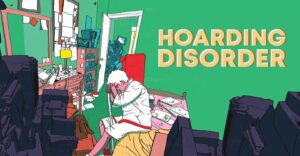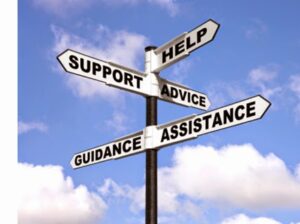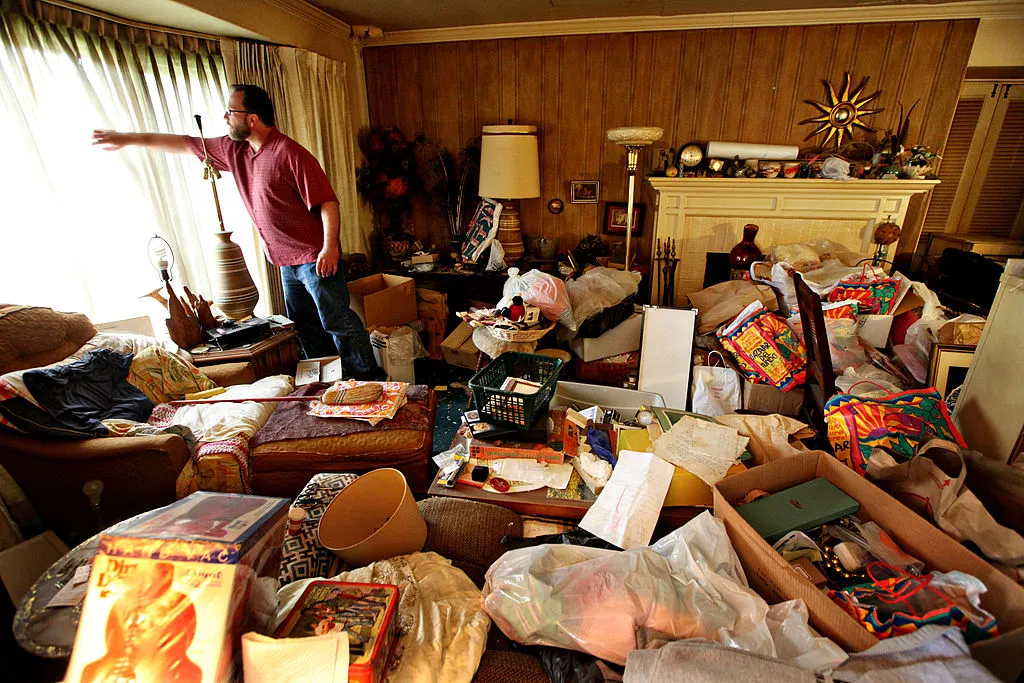If you are living with a hoarder, you know just how overwhelming the situation can be. Hoarders tend to accumulate large amounts of stuff, which can cause serious problems for both the hoarder and everyone else in the home. If you are struggling to deal with a loved one who is a hoarder, don’t worry – you are not alone. In this blog post, we will discuss some tips for dealing with a hoarder and creating a more livable environment for everyone involved.
Contents
- 1 What Is Hoarding?
- 2 How To Know If Someone Is A Hoarder?
- 3 What Are The Consequences Of Living With A Hoarder?
- 4 How To Manage Living With A Hoarder?
- 4.1 Be aware and educated about the problem
- 4.2 Make a plan
- 4.3 Be mindful of the words you use
- 4.4 Celebrate small wins
- 4.5 Avoid triggers
- 4.6 Set boundaries
- 4.7 Offer help in a rational way
- 4.8 Navigate through their belongings with care
- 4.9 Refrain from giving advice
- 4.10 Focus on the present
- 4.11 Make your own space
- 4.12 Take care of yourself
- 4.13 Seek professional help
- 5 Conclusion
What Is Hoarding?

Hoarding is a disorder that is characterized by the excessive accumulation of stuff. Hoarders may accumulate anything from clothes to books to food to garbage. Often, hoarders are unable to part with their belongings, even if they are no longer useful or needed. This can cause serious problems in the home, as hoarders often live in cluttered and dangerous conditions.
Oftentimes, hoarding is also categorized as a subtype of OCD, or Obsessive Compulsive Disorder. This is because hoarders often have obsessive thoughts about their belongings and feel the need to keep them in a certain way. For example, a hoarder may feel the need to keep all of their clothes in one pile, even if it is no longer possible to fit everything into their closet.
It is important to know when hoarding is starting to become a problem. While it is normal to collect items that are sentimental or have some value, hoarders often accumulate large amounts of stuff that they do not need and cannot use. This can lead to dangerous and unhealthy living conditions.
How To Know If Someone Is A Hoarder?

It can be tricky and difficult to tell if someone is a hoarder. Here are some signs that may indicate that someone is hoarding:
- Having an excessive amount of stuff, especially in one area of the house
- Unable to part with their belongings, even if they are no longer needed or used
- Living conditions are cluttered and dangerous
- Having obsessive thoughts about their belongings
- Difficulty using certain areas of their home, such as the kitchen or bathroom, because of the clutter
- Constantly acquiring new things, even if they do not have the space for them
- Becoming anxious or upset when someone tries to get rid of their belongings
- Feeling the need to keep everything in a certain way
If you are concerned that someone you know may be a hoarder, it is important to talk to them about your concerns. Often, hoarders are not aware of the problem and may not realize how their behavior is affecting those around them. It is important to stay aware of the red flags and warning signs to ensure that the situation does not become overwhelming.
What Are The Consequences Of Living With A Hoarder?

It is no secret that living with a hoarder can be difficult. Here are some of the consequences that you may experience if you are living with a hoarder:
- You may feel like you are walking on eggshells, as you are constantly worried about upsetting the hoarder or triggering their OCD.
- It can be difficult to have visitors over, as you may be embarrassed by the state of your home.
- You may find it hard to keep up with cleaning and organization, as the hoarder is constantly adding new items to the home.
- You may feel like you are constantly cleaning up after the hoarder, which can be frustrating and exhausting.
- The hoarder may become isolated from friends and family, as they are embarrassed by their disorder.
- It can be difficult to have a healthy relationship with the hoarder, as their disorder can cause a lot of tension and conflict.
- Lastly, it can be dangerous to live with a hoarder, as their cluttered home may be a fire hazard.
If you are living with a hoarder, it is important to reach out for help. There are many resources available to help you deal with the situation. You can find support groups, therapists, and even cleaning services that specialize in helping people deal with this condition. Remember, you are not alone!
How To Manage Living With A Hoarder?
Now that we are aware of the possible consequences of living with a hoarder, let’s discuss how you can manage the situation. Here are some tips on how to deal with a hoarder:
Be aware and educated about the problem
The very foremost step to take is to educate and be aware of the problem. This will help you understand your situation better, as well as equip you with the knowledge of what to do next. Additionally, having awareness and education can also help to remove the stigma associated with hoarding, which will make it easier for you to reach out for help. This can also help you to make other people, such as peers, colleagues, or family members, more aware of the problem.
Make a plan

If you are living with a hoarder, it is important to make a plan. This plan should include how you will deal with the situation on a day-to-day basis, as well as what you will do in the event of an emergency, such as a fire. Additionally, it is important to have a plan for how you will deal with your own emotions, as living with a hoarder can be very stressful. For example, you may want to consider talking to a therapist or joining a support group. You can also hire additional help or contact a cleaning service to come in and help you with the hoarder’s belongings.
Be mindful of the words you use
It is rightfully said that the words we use shape our reality. So, while you are having a conversation with the hoarder in your life, be mindful of the language you use. Words such as “junk,” “clutter,” or “mess” can be triggering and make the hoarder feel defensive. Instead, try to use neutral words such as “items” or “belongings.” Moreover, the words you use to describe the person with the disorder also carry weight. Avoid calling the person a “hoarder,” as this can make them feel like they are their disorder. Instead, try to use phrases such as “person with hoarding disorder” or “someone who struggles with hoarding.”
Celebrate small wins
It is very important to inculcate a sense of patience when you are living with a hoarder. This is because change is not going to happen overnight. So, instead of getting frustrated, try to celebrate small wins. For example, if the hoarder agrees to get rid of one item, praise them for their efforts. Similarly, if they allow you to clean up one area of their home, be sure to give them positive reinforcement. This will help to slowly but surely change their behavior over time.
Avoid triggers
When living with someone with a problem as sensitive as hoarding, it is important to be aware of triggers. A trigger is anything that can cause the hoarder to start hoarding again. For example, a trigger could be something as innocuous as seeing an advertisement for a garage sale. So, if you know what triggers the hoarder in your life, try to avoid them. Additionally, it is also important to avoid being critical of the hoarder or their belongings, as this can also be a trigger.
Set boundaries
With any kind of mental illness, it is important to set and maintain boundaries. This may be difficult, as hoarders often do not see their behavior as a problem. However, it is important to establish boundaries in order to protect yourself from the negative consequences of living with a hoarder. For example, you may want to set a rule that no new items can be brought into the home until the existing clutter is dealt with. This will help to prevent the situation from becoming overwhelming.
Offer help in a rational way

While it is obvious that you want to help the hoarder in your life, it is important to offer help in a rational way. This means that you should not try to force them to get rid of their belongings or make them feel like they are powerless. Instead, try to have a calm and rational conversation with them about the situation. Additionally, it is important to offer help in a way that respects their autonomy. For example, you could offer to help them sort through their belongings, but you should not try to do it for them.
When dealing with the elephant in the room, that is, the hoarder’s belongings, it is important to proceed with care. This means that you should not try to force them to get rid of anything. Instead, try to navigate through their belongings with patience and understanding. Additionally, it is important to be respectful of the hoarder’s things. This means not throwing anything away without their permission, as well as not being critical of their belongings.
Refrain from giving advice
People with mental disorders often know what they need to do or should not do. It is the nature of their disorder that prevents them from taking the necessary steps. So, when you are talking to a hoarder, refrain from giving advices such as “You should get rid of this” or “You need to organize your things.” This will only serve to frustrate the hoarder and make them feel like you do not understand their situation. Instead, try to listen to what they have to say and offer support. This will help the hoarder feel heard and respected, which is essential for their recovery.
Focus on the present
When living with a hoarder, it is important to focus on the present. This means not dwelling on the past or worrying about the future. Instead, focus on what you can do in the here and now to make the situation better. For example, you could offer to help the hoarder sort through their belongings. Or, you could simply spend time with them and offer support. Whatever you do, just remember to focus on the present.
Make your own space
It is an undeniable fact that living with a hoarder can be overwhelming. So, it is important to make your own space in the home. This means having a room that is just for you and that the hoarder cannot enter. This will give you a much-needed break from the clutter and chaos. Additionally, it is also important to have your own belongings that are not mixed in with the hoarder’s things. This will help you to feel like you have some control over your own life.
Take care of yourself
It is a popular saying that one can not pour from an empty cup. This means that you cannot take care of someone else if you do not take care of yourself first. So, when living with a hoarder, it is important to make sure that you are taking care of yourself. This means eating right, getting enough sleep, and exercising. Additionally, it is also important to find some time to yourself to engage in activities that you enjoy. This will help you to relax and de-stress.
Seek professional help

If you have tried all of the above tips and nothing seems to be working, it may be time to seek professional help. There are many therapists and counselors who specialize in helping people with hoarding disorders. These professionals can help not only the people with the disorder but also their loved ones. If you are feeling overwhelmed, do not hesitate to seek out professional help.
Living with a hoarder can be difficult and overwhelming, but it is important to remember that you are not alone. There are many people who understand what you are going through and can offer support. With the right type of help, it is possible to make progress in dealing with a hoarder. Just remember to take things one step at a time and to focus on the present.
Conclusion
In conclusion of the above, living with a hoarder can be difficult but there are ways to deal with the situation. It is important to be patient, respectful, and to focus on the present. Additionally, it is also important to make your own space in the home and to take care of yourself. Lastly, if you are feeling overwhelmed, do not hesitate to seek professional help. With the right type of help, it is possible to make progress in dealing with a hoarder.
If you or someone you know is looking for a reliable and accessible source to get quality mental health care, do consider Therapy Mantra. At Therapy Mantra, we have a team of experienced mental health professionals who can help you learn how to manage your OCD symptoms. Our services are available from all across the globe at affordable rates. Contact us today to book a session or download our free OCD tTeatment App on Android or iOS app for more information.


